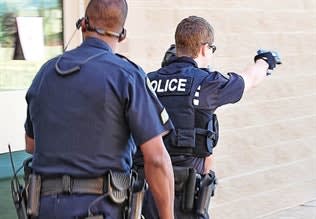Former Massachusetts State Police officer Todd McGhee says most active shooters have a thing or two in common. Among their similarities:
A lone wolf personality. They are socially isolated, generally having few if any friends.
Situational events in their lives have led them to become despondent and often depressed.
They have feelings of alienation, bullying, and persecution, and tend to blame others for their problems. "There are individuals who are angry enough to kill their family members or coworkers or classmates but there are also a few people among us who blame everybody, all of humanity, for their problems and want to get even with people in general," explains Jack Levin, author of "Extreme Killing: Understanding Serial and Mass Murder."
They've had very little interaction with police or mental health providers. "They are nontraditional criminals," states McGhee. "They fear detection unless there is a suicide component to their plan."
As their world starts to unravel, they formulate a plan to target their persecutors. "There is generally a loss that precipitated the attack and they have no place to turn for help when they get into trouble," McGhee says.
They pick high volume places to carry out their plan. "They identify a place that has a high volume of people with little police presence," McGhee says.












